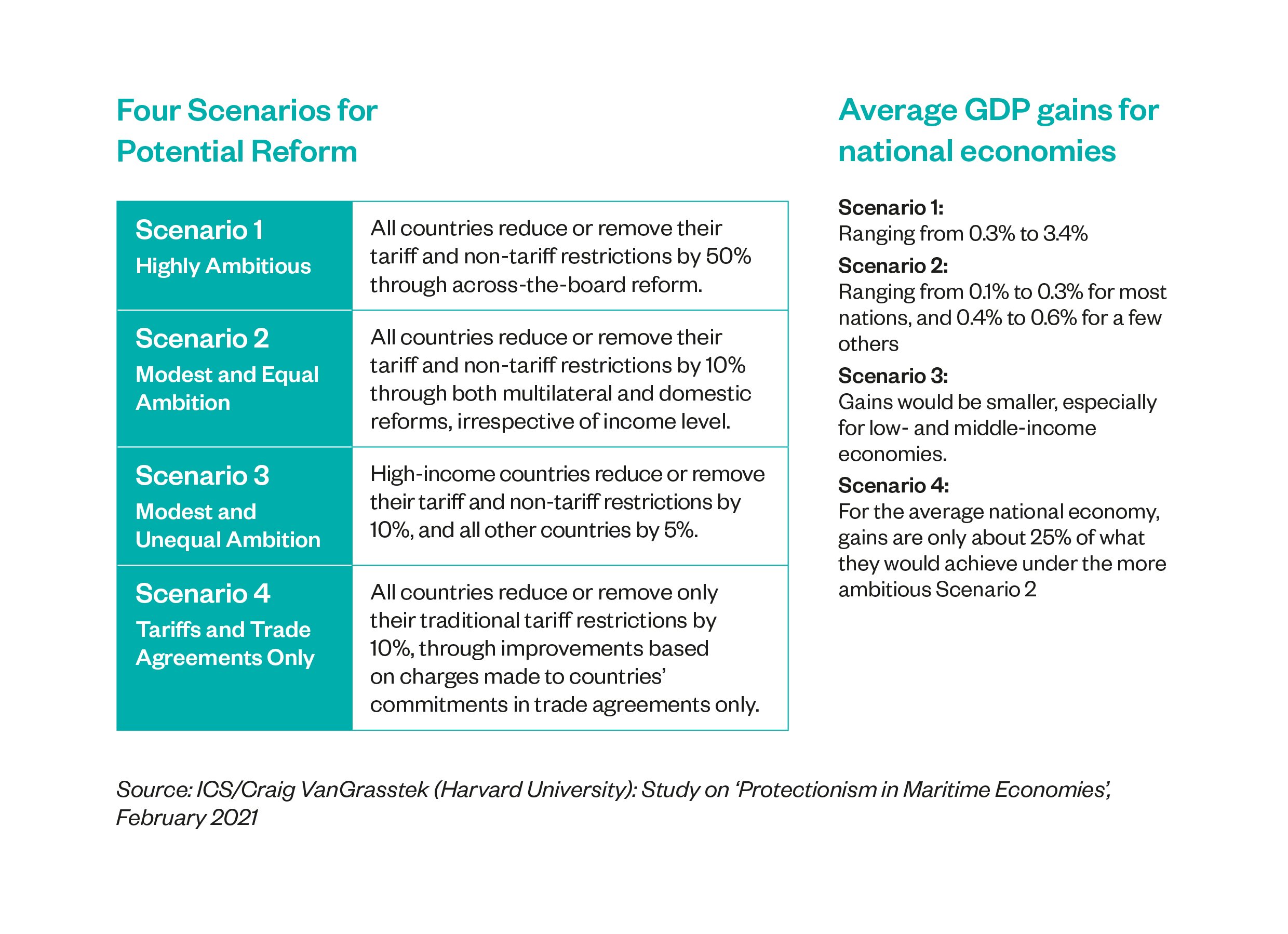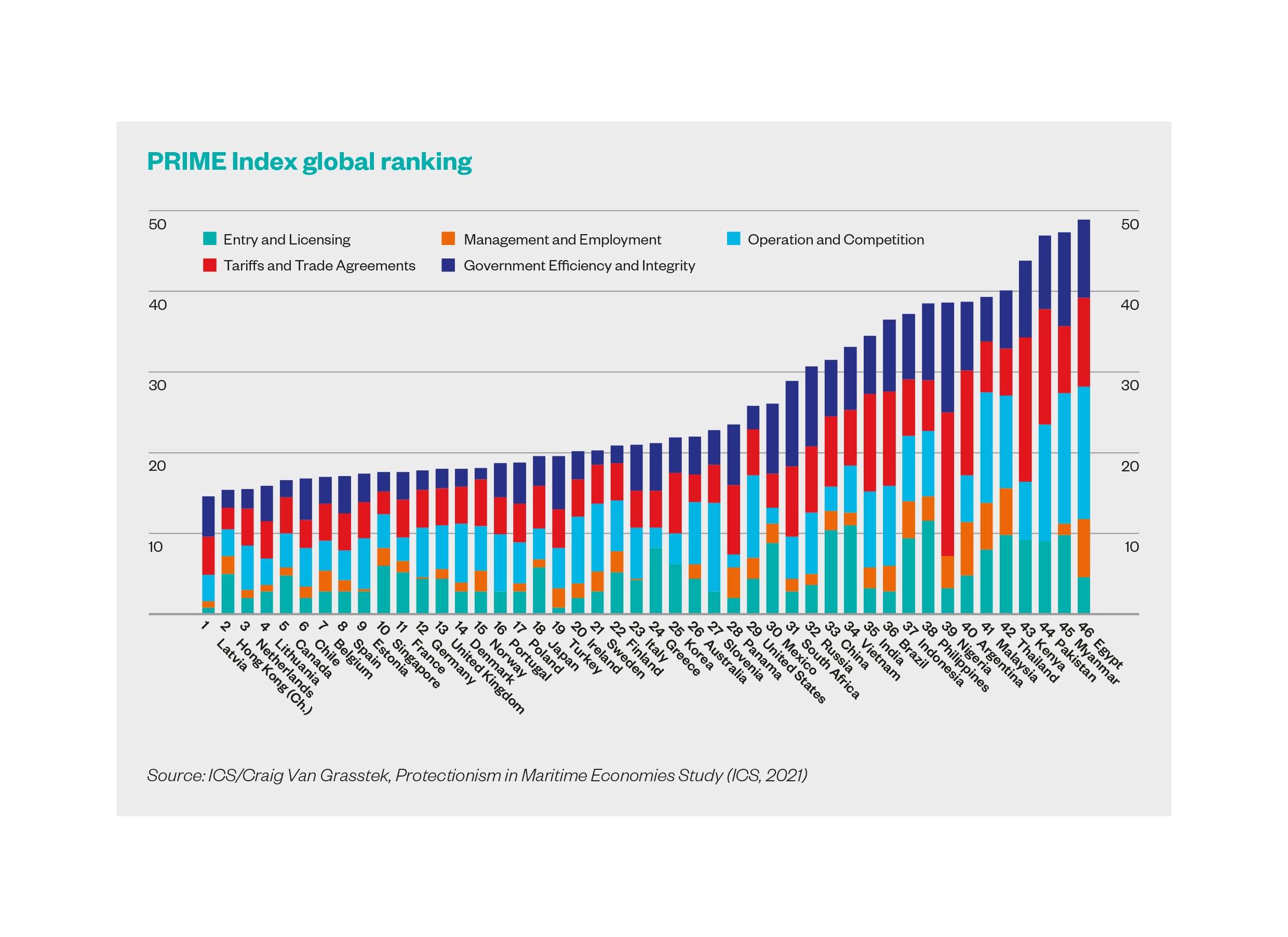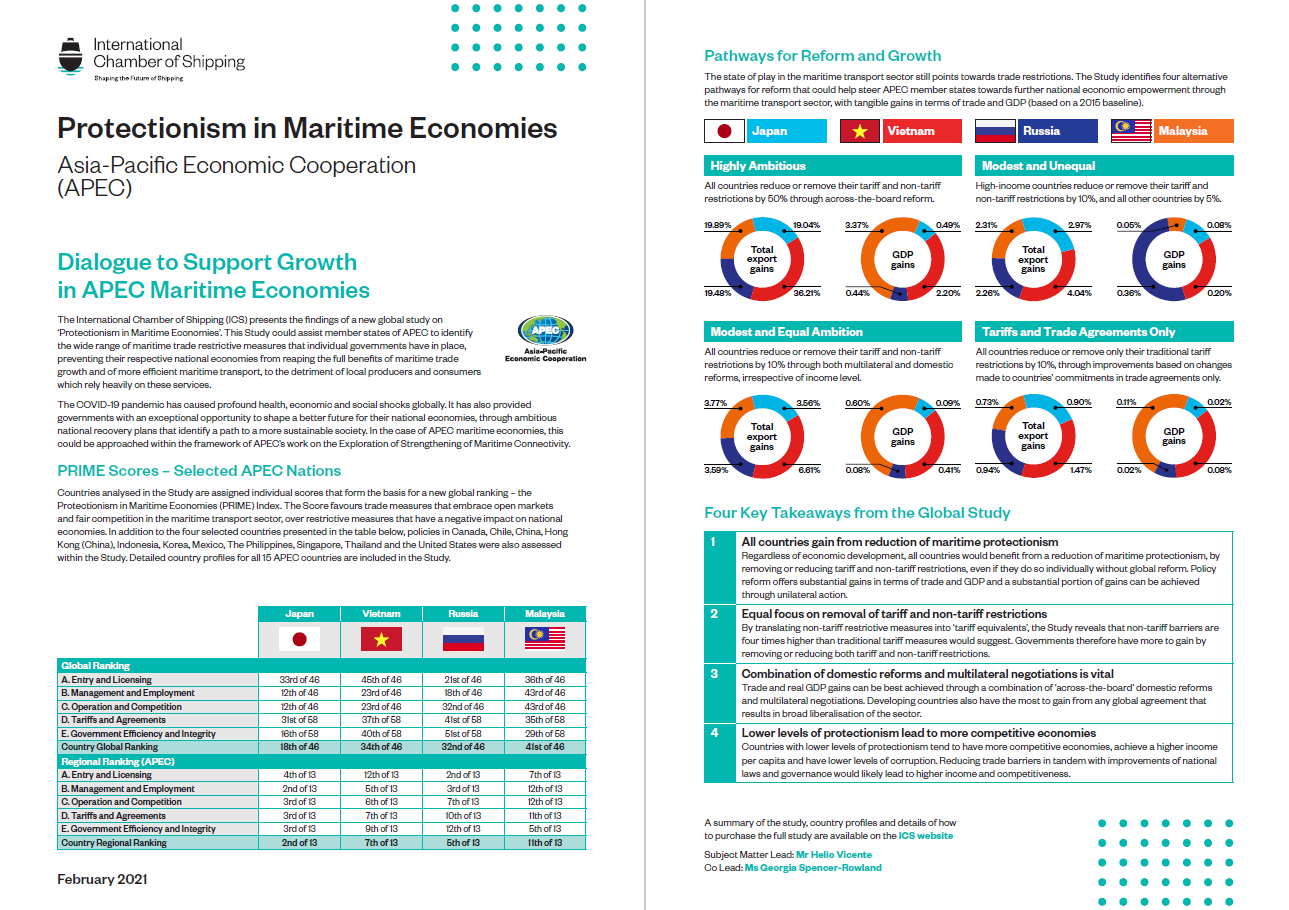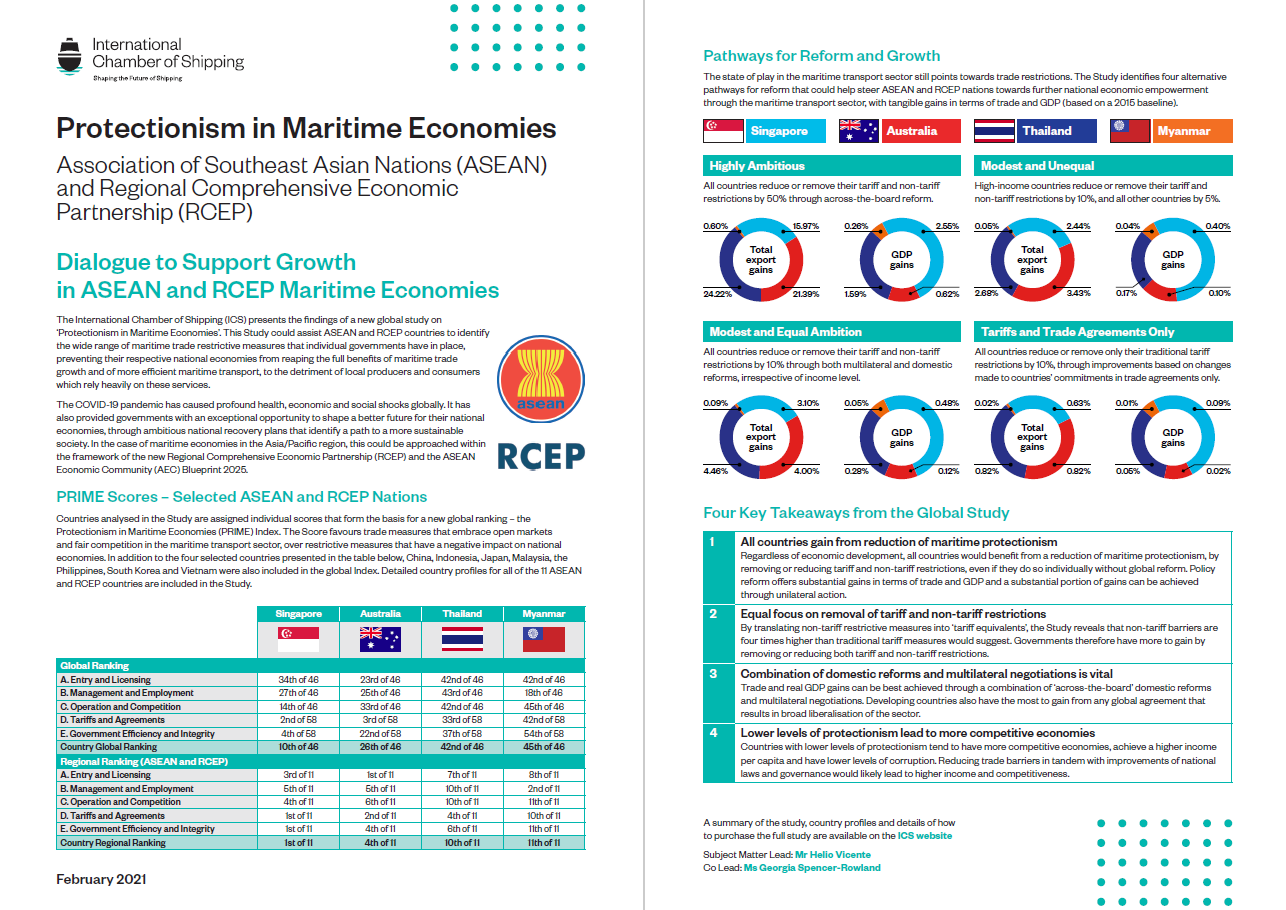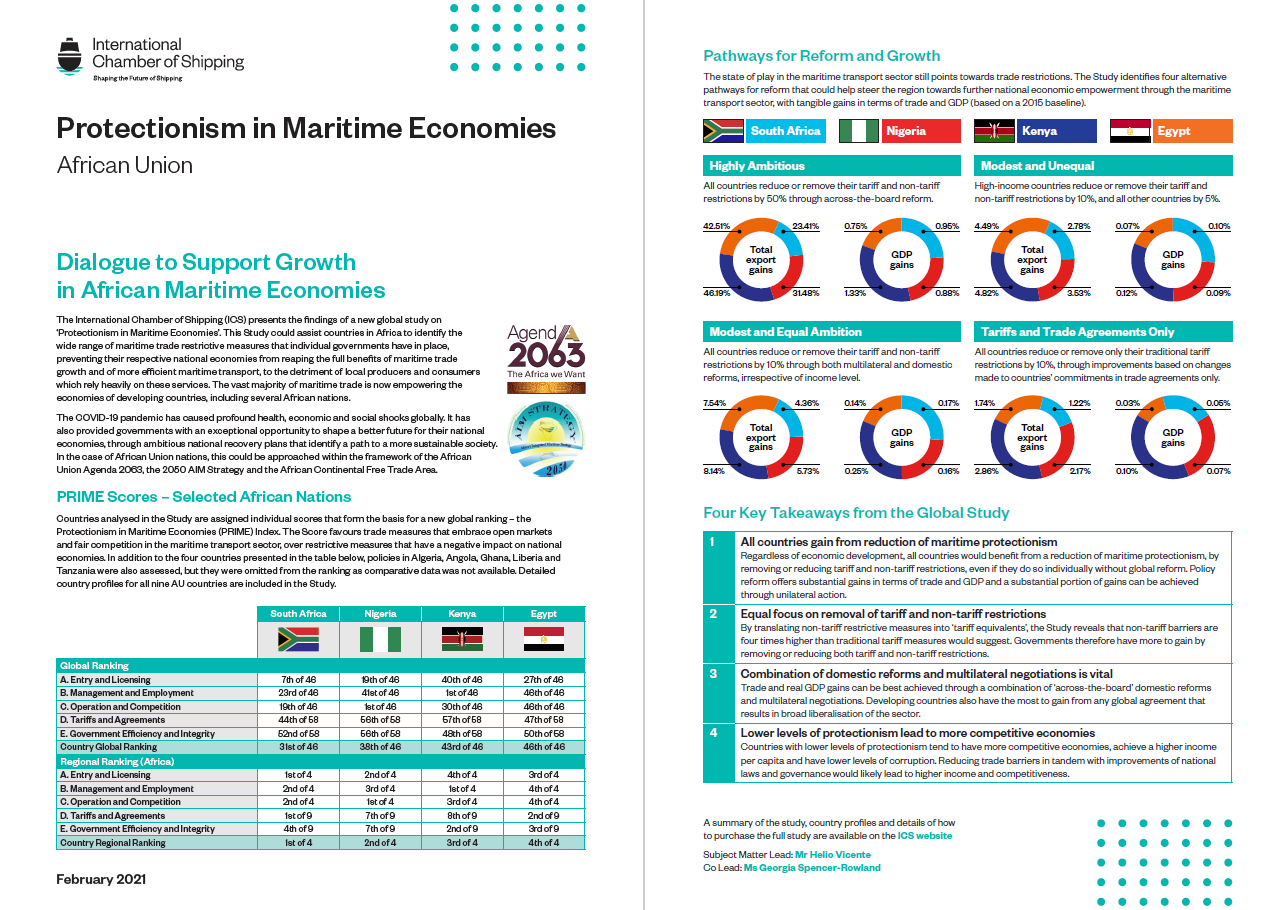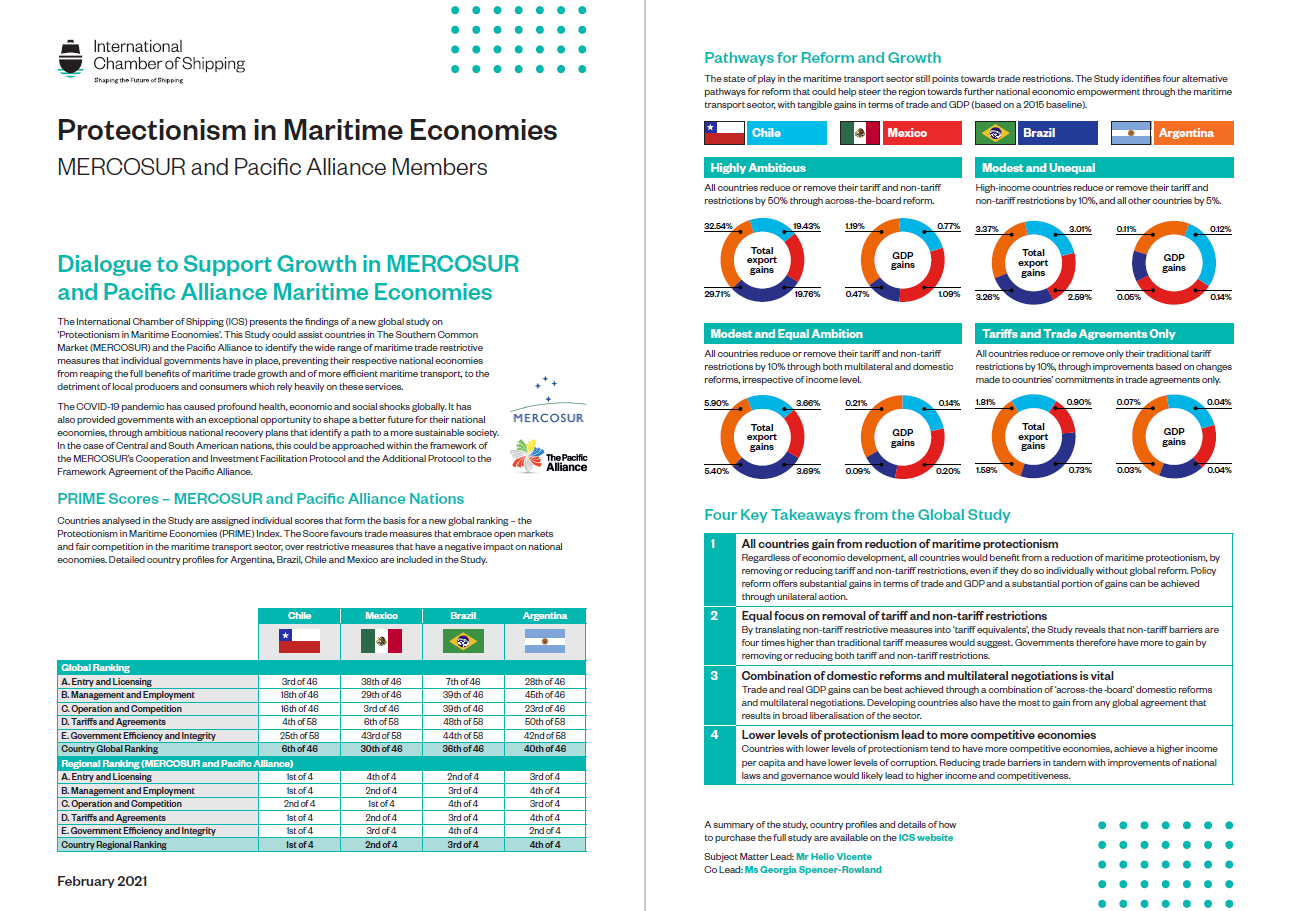Protectionism in Maritime Economies Study
Page navigation
Benefits of Liberalisation: Scenarios for Reform
Global Ranking of Maritime economies: The PRIME Index and PRIME Scores
Benefits of liberalisation by regional trade bloc
Overview
ICS’ global trade Protectionism in Maritime Economies Study outlines the protectionist trade policies being implemented by governments worldwide. It demonstrates that if countries cut restrictive maritime trade policies it could help boost GDP by as much as 3.4% for national economies.
Cutting restrictive measures
The Study shows how each of the 58 countries analysed can identify and reduce its restrictive measures to lower the cost of doing business and increase its share in global maritime trade, which was estimated at US$14 trillion in 2019.
This includes both tariff and non-tariff restrictions, such as anticompetitive licensing laws and discriminatory treatment of foreign companies, found to be up to five times worse than tariffs themselves.
Pathways for reform
Four scenarios are provided for potential policy reform, demonstrating real GDP gains for national economies if trade restrictive measures are reduced. The degree of benefit is largely dependent on a country’s level of ambition.
It is hoped governments will use the Study to better navigate the economic impact of COVID-19, which is being compounded by the knock-on effects of growing trade protectionism and inward-looking policies.
The Protectionism in Maritime Economies Study provides tangible ways in which countries can boost economic growth in difficult times.
Country scores
46 maritime nations, accounting for the vast majority of the global economy, have been analysed and given a Protectionism in Maritime Economies (PRIME) score according to how restrictive their trade policies are, based on factors such as management and licensing rules, government integrity, and tariffs. The PRIME score is a single number that allows general comparison by aggregating the different measures of a country’s trade policies.
Country Profiles are also provided covering all national economies assessed in the research. Summaries of all country profiles are provided below, breaking down the PRIME scores for individual nations.
Benefits of Liberalisation: Scenarios for Reform
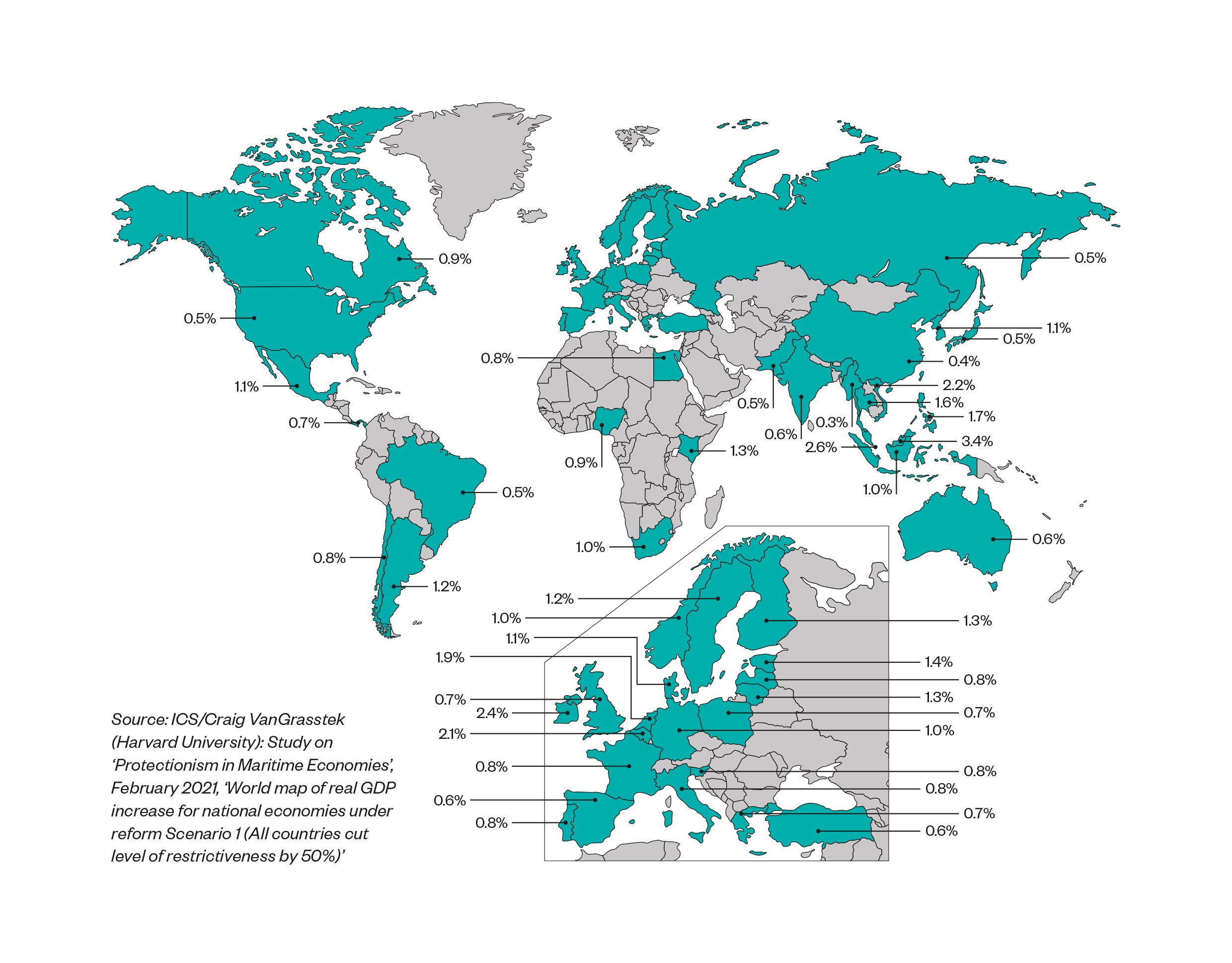 The Study demonstrates that no matter what their level of economic development, all national economies would benefit from liberalisation of maritime trade policies. These gains can be maximised if reforms are undertaken through a combination of ‘across-the-board’ domestic reforms and multilateral trade negotiations.
The Study demonstrates that no matter what their level of economic development, all national economies would benefit from liberalisation of maritime trade policies. These gains can be maximised if reforms are undertaken through a combination of ‘across-the-board’ domestic reforms and multilateral trade negotiations.
ICS data reveals that policy reform that reduces levels of trade restrictiveness offers notable gains in trade and GDP for national economies. The World Map shown below highlights the potential for real GDP increase under the Study’s most ambitious reform scenario, where all countries reduce their levels of trade restrictiveness by 50%.
Our findings suggest that, on average, GDP gains for national economies under this scenario would range from 0.3% to 3.4%.
Global Ranking of Maritime Economies: PRIME Index and PRIME Scores
To incentivise the necessary policy reforms, the Study has developed a new index on Protectionism in Maritime Economies, or PRIME Index.
This Index forms the basis for a new global ranking, which allocates an individual PRIME Score to each of the 46 nations assessed, aggregating the different measures of a country’s trade policies based on their level of trade restrictiveness.
A PRIME Score is a single number which ranges from 0–100 points, with 100 being the worst possible score.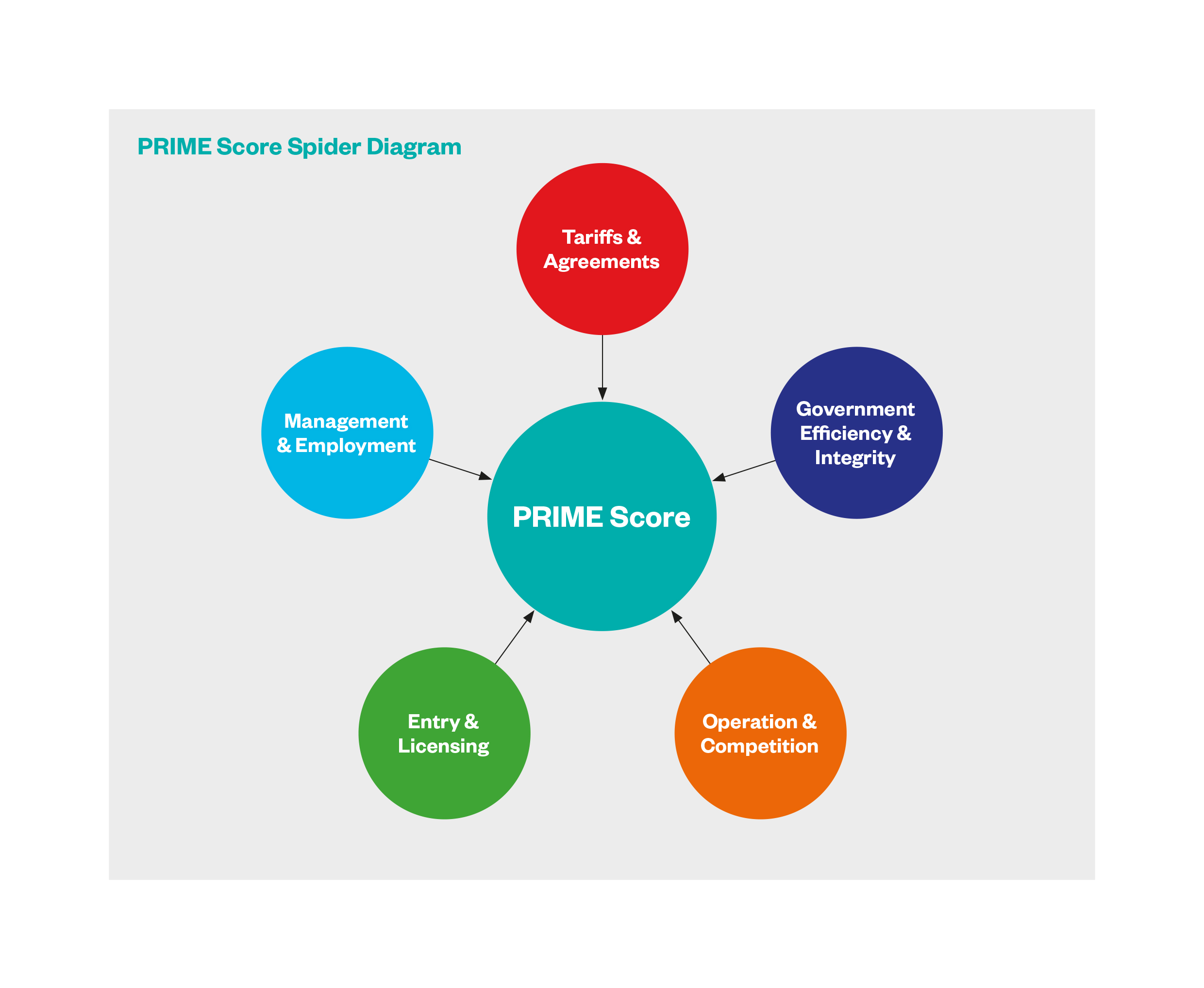
The scores are calculated based on 5 overarching criteria which are based on factors such as management and licensing rules, government integrity and tariffs (see opposite). The main criteria encompass 77 elements, corresponding to various trade restrictive measures.
The higher the PRIME score, the more restrictive the trade policy.
PRIME Index Global Ranking
Below is the order in which individual countries have been ranked, based on their PRIME scores.
Benefits of liberalisation by trade bloc
Based on the data from the Study, we provide below two-page overviews presenting the research findings and highlighting the benefits of liberalising maritime trade policies, in the context of regional trade blocs, using four selected countries from each bloc as an example.
APEC profile (click to enlarge)
ASEAN and RCEP profile (click to enlarge)
African Union profile (click to enlarge)
MERCOSUR and Pacific Alliance profile (click to enlarge)
PRIME Scores by country
Summaries of the country profiles from the Study are provided below, breaking down the PRIME scores for individual nations.

Algeria
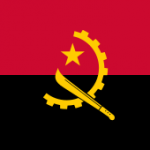
Angola

Argentina
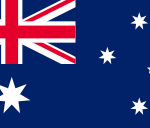
Australia

Brazil
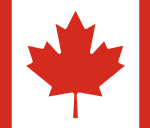
Canada

Chile
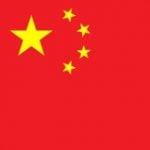
China

Egypt
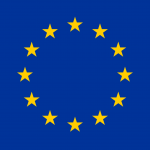
European Union

Ghana

Hong Kong

India
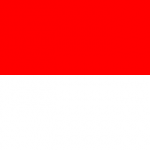
Indonesia

Japan

Kenya
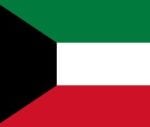
Kuwait
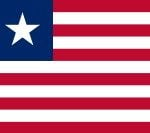
Liberia
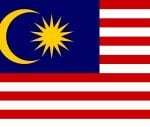
Malaysia
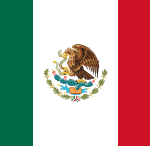
Mexico

Myanmar
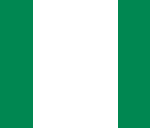
Nigeria
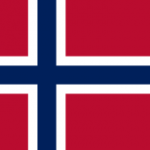
Norway

Pakistan

Panama
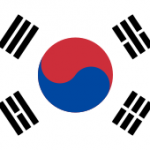
Republic of Korea

Russian Federation

Saudi Arabia
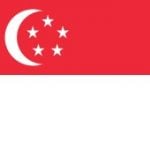
Singapore

South Africa
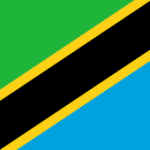
Tanzania
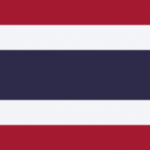
Thailand
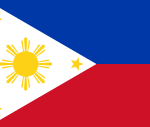
The Philippines
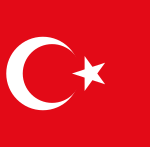
Turkey
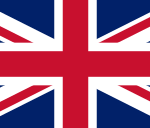
United Kingdom

United States

Viet Nam
Contact ICS
Media enquiries
Please click here or call Duncan Bray on +44(0) 797 222 4445 in UK office hours or +44 (0) 208 638 8753 out of office hours.
Policy enquiries
Please contact Helio Vicente and Georgia Spencer-Rowland.
Related content
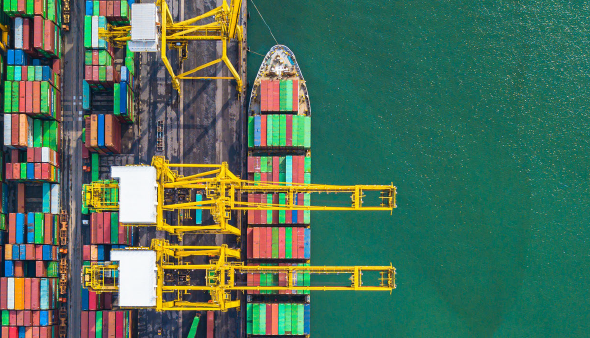
Trade Policy Review 2022

Trade Policy Review 2022

Fuelling the Fourth Propulsion Revolution: An Opportunity for All – Summary Report

